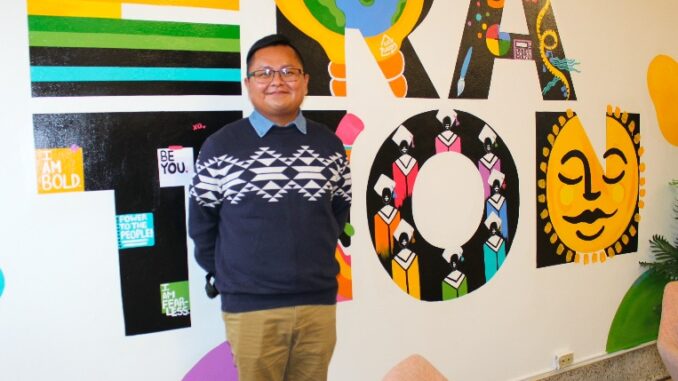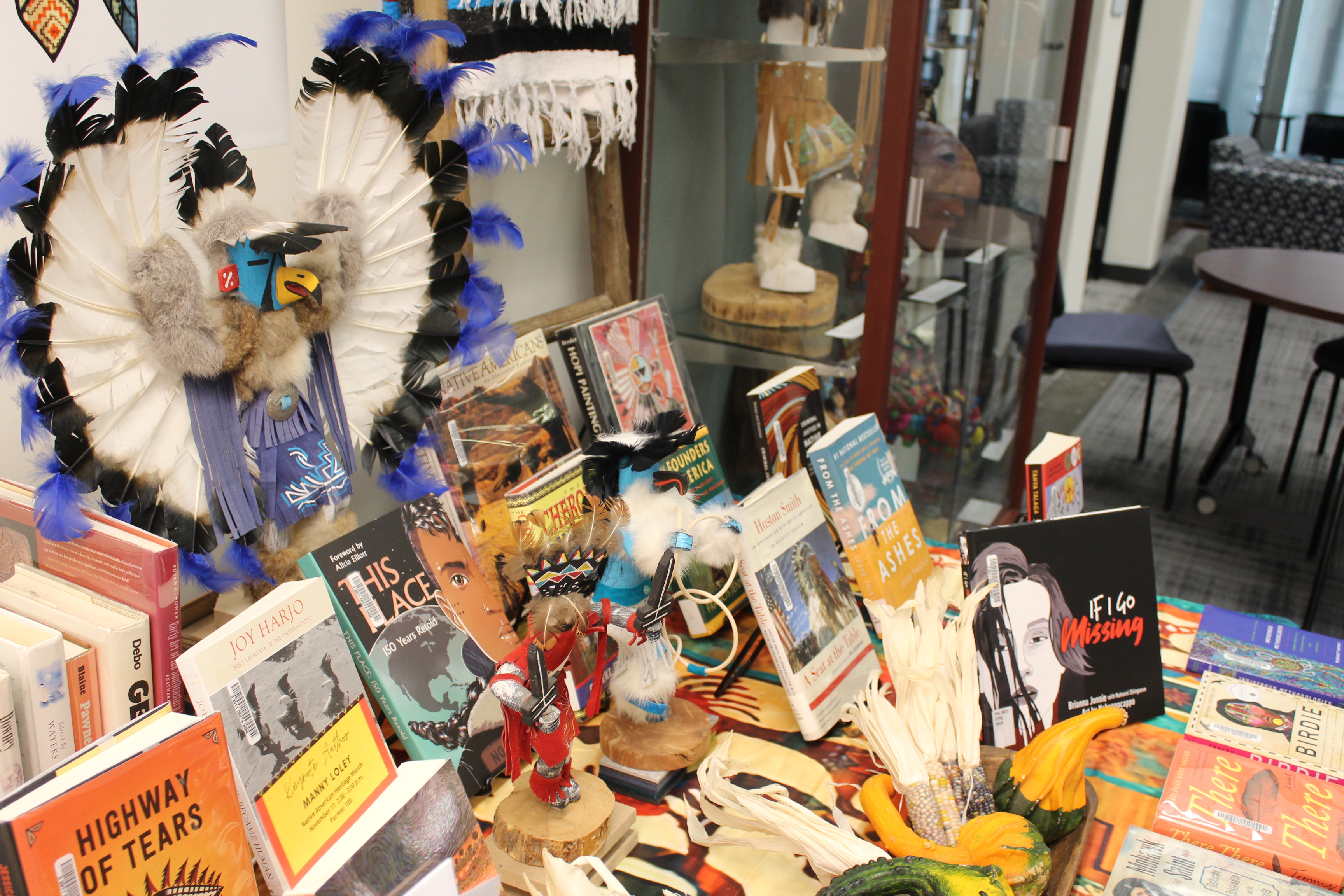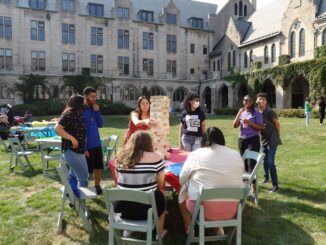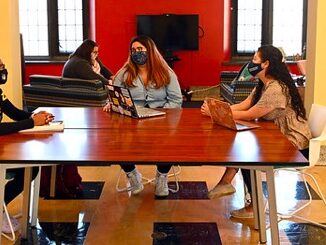
By Chelsea Zhao
Staff Writer
Indigenous Heritage Month Keynote address from Diné scholar furthers DU’s understanding of the Indigenous experience in American literature.
Manny Loley, Diné scholar and storyteller, arrived at Dominican University from Denver, Colorado to talk with students on his literary work and the significance of Indigenous literature.
Loley introduces himself as the clans of his ancestors of the Navajo Nation.
“I am salt clan born for who came to the water, my maternal grandparents are the bitter water, and my paternal grandparents are the towering house,” Loley said. “And so, these four clans comprise my identity as a Navajo person.”
Growing up in Casamaro Lake, New Mexico on a reservation of less than 100 people, Loley said he lived in a mobile home without running water or electricity. His school is a federal government boarding school that used to be forts where native people were imprisoned.
Loley said he is most influenced by his mother who has the vivid imagination of a storyteller. Diné means the people for the Navajo Nation, the largest Indigenous tribe in the United States.
Loley said that his identity as a Diné scholar carries both the responsibility of the community and the dedication to his own lived experience.
“I think being a Diné scholar carries a different kind of responsibility than mainstream scholars” Loley said. “There’s the responsibility of community. A lot of the work that I do is very community-centered. I want to tell the story of my family, the stories from my community; not just cultural or spiritual stories but the stories of our lived experience.”
Jacky Neri Arias, director of Center for Cultural Liberation, first reached out to Loley from her network.
Loley said the organization of the event took several months as he communicated with Arias on the collaboration effort. He appreciated Arias’ role as the sounding board for his thoughts and ideas going into the event.
In his presentation, Loley explains the concept of sovereign erotic as a concept of liberation and gender identity expression.
“And because we’re now starting to write narratives that explore all aspects of human experience,”Loley said. “We are beginning to frame ourselves as alive people, as people that change over time, that feel emotions, that feel desire, that feel emotion ,that feel sadness. And the whole gamete of human emotions. And this idea of sovereign erotic is toward that, toward that aliveness, that wholeness.”
By sharing his scholarly work with DU, Loley seeks to recover the vastness of literary imagination in all mediums.
“And even not limiting literature as in print culture, but thinking of it more broadly as story-telling, which include the oral, which includes the pictures and other forms of telling” Loley said.



